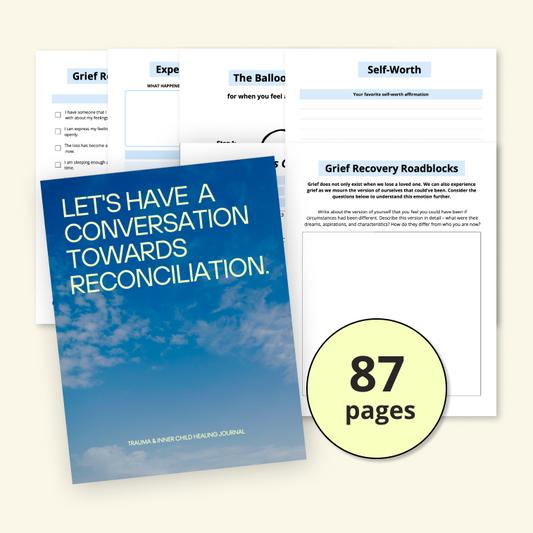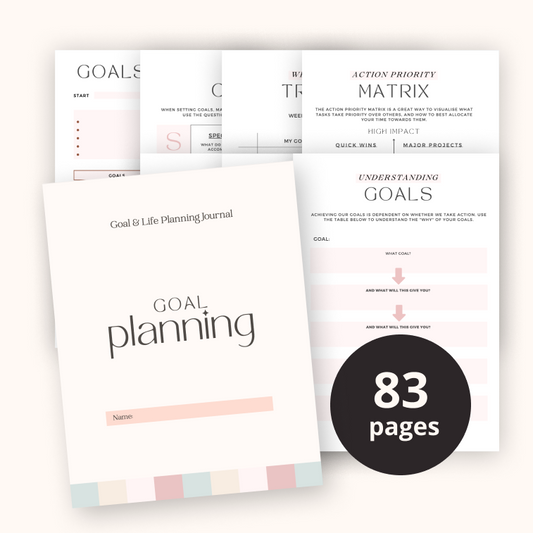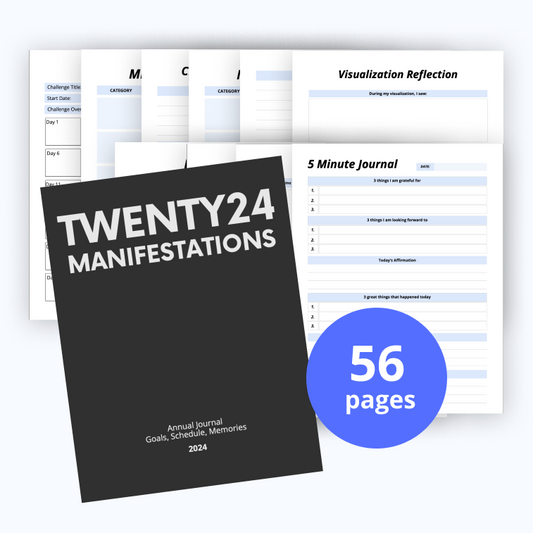Feeling like you’re always in a rush, with patience wearing thin? You’re not alone. In a world where instant gratification is the norm, cultivating patience can feel like an uphill battle. But what if you could rewire your brain to embrace the slow burn of progress?
Journaling might just be your secret weapon. With the right prompts, you can peel back the layers of your on-the-go mindset and plant the seeds for a more patient you. Stick around, and let’s explore some thought-provoking journal prompts that are designed to do just that.
You’re about to discover a treasure trove of self-reflection that could unlock the patience you’ve been seeking. Get ready to dive deep and transform your approach to life’s waiting games.
Understanding the Importance of Patience
Patience isn’t just a virtue; it’s a core component of your mental wellbeing. In a high-speed world, learning to slow down takes effort, but the rewards are vast. Imagine a life where you don’t flick to frustration like a light switch, or a day where you sail smoothly through setbacks. That’s the power of patience—it transforms your daily experiences and interactions for the better.
Through patience, you’re tapping into a more compassionate and empathetic version of yourself. You’re giving yourself the chance to step back, to understand situations deeply, and to respond instead of reacting. Patience is linked to less stress, and let’s be honest, who doesn’t need a bit of that magic in their life? When you master patience, you’re nurturing resilience, enhancing relationships, and improving your decision-making skills.
You’re probably itching to flex those patience muscles, and journaling is your gym for the mind. Your Wholesome guided journal is brimming with prompts that urge you to peer inward and practice patience. Each prompt nudleads you through self-reflection and growth. Here are some to start with:
Journal Prompts for Cultivating Patience:
- When was the last time I felt impatient? What triggered it?
- What does patience look and feel like to me?
- How does impatience affect my body and mind?
- Recall a time patience paid off in a big way.
- Describe a situation where you wish you had been more patient.
- I feel most impatient when…
- List five things that test your patience daily. How can you approach them differently?
- Consider someone you believe is very patient. What can you learn from them?
- How might I benefit from taking a few slow, deep breaths when I’m impatient?
- What are small steps I can take to build patience in my daily routine?
- Reflect on a goal that requires your patience. How are you working towards it?
- What habits can I develop to become more patient with myself?
- Think about a time your patience led to a positive outcome.
- Write about how impatience affects your relationships.
- Identify the areas in your life where patience could be most valuable.
- Write a letter to your future, more patient self. What do you want to tell them?
- Visualize a stressful situation. How can you handle it patiently?
- What are the obstacles that are keeping you from being patient?
Identifying Your Triggers for Impatience
As you embark on this journey with your trusty Wholesome guided journal in hand, it’s crucial to pinpoint what flips your impatience switch. Everyone has their unique set of triggers, and figuring out yours is like uncovering hidden treasure—it gives you the keys to unlock a more patient and joyful you.
Imagine you’re a detective in your mind’s mystery novel. Your mission: to unearth the clues that lead to impatience. It might be the slow-moving line at the coffee shop or the spinning wheel of a loading website. Recognizing these moments is the first step towards cultivating patience.
Here are some spiffy journal prompts to help you identify and understand your triggers:
- When was the last time you felt impatient? Describe the situation.
- How does impatience physically feel in your body? Are there any particular sensations?
- Can you list three instances where you lost patience this week? What was common in these situations?
- Think of a time when you handled a delay with grace. What made that different?
- Who in your life do you associate with impatience, and why?
- Reflect on a moment when impatience led to a hasty decision. What were the consequences?
- Are there specific times of the day when you’re more likely to be impatient?
- Contemplate a recurring event that tests your patience. How do you typically react?
- How does your level of tiredness or hunger affect your impatience?
- Do certain words or phrases trigger impatience in you? Write them down.
- When interacting with technology, what most often leads to impatience?
- During social gatherings, what actions or behaviors make you feel impatient?
- How does traffic or transit issues affect your mood?
- What tasks or chores provoke impatience? List them out.
- Can you identify a recent time when waiting actually resulted in a positive outcome?
- Imagine a situation where someone else’s impatience affects you. How do you feel?
- What expectations do you have of yourself that might lead to impatience?
- Recall a recent argument or disagreement. Did impatience play a role?
- Are there particular environments where you feel your patience thinning?
- What hobbies or activities do you find most testing to your patience?
Reflecting on the Consequences of Impatience
When you’re on a journey to master the art of patience, it’s essential to understand the ripple effects of impatience in your life. Let’s be real: who hasn’t sent a text in frustration or huffed in a long line, right? Recognizing the outcomes of these moments can offer priceless insight into the benefits of taking a deep breath and countering impatience.
Take a moment to reflect on the times when impatience got the best of you. Cast your mind back and be honest with yourself. It’s not about self-judgment; it’s about self-awareness.
Here are some journal prompts to guide your introspection:
- When’s the last time impatience made a situation worse?
- Have you ever regretted a decision made out of impatience?
- How has impatience impacted your relationships, whether with friends, family, or co-workers?
- Do you find impatience affecting your work quality or focus?
- What’s the difference in your communication style when you’re impatient versus patient?
- Can you recall a time when being impatient left you feeling embarrassed?
- How do impulsive actions tied to impatience affect your stress levels?
- In what ways has impatience cost you time or money unnecessarily?
- Reflect on an instance when patience would have led to a better outcome in a conflict.
- Has impatience ever led to missed opportunities or a loss of trust?
- Notice if there’s a pattern in your impatience—does it emerge more in certain settings?
- How do others react to your impatience? Can you sense their discomfort or frustration?
- Think about a recent moment of impatience. What could you have done differently?
- Are there hobbies or tasks you avoid because you lack patience for them?
- How does your body physically respond to impatience? Tension, elevated heartbeat, something else?
- Does being impatient align with who you want to be?
- Describe how you feel after an impatient outburst—what’s the emotional aftermath?
- Do your impatient actions match the values you wish to embody?
- Consider how patience can transform your daily routine. What changes do you see?
- What are the long-term benefits of developing a patient mindset in your personal and professional life?
Exploring these prompts can offer clarity and motivate change, gently nudging you towards a more patient approach.
Cultivating a Mindset of Acceptance and Serenity
When you’re on the journey to developing patience, embracing a mindset of acceptance and serenity can be incredibly transformative. It’s about learning to ride the waves of life with grace, easing into the ebb and flow without resistance.
Journaling can be a powerful tool to help you attain this serene state of mind. By reflecting on the right prompts, you can start to identify areas of resistance and discover ways to cultivate a more accepting attitude. Here’s a loving nudge from Wholesome to guide you on your path to patience and peace.
- What does acceptance mean to you?
- Describe a situation where you resisted what was happening. How did it feel?
- Recall a moment you felt completely at peace. What contributed to that serenity?
- Write about times when you’ve reassured a friend. How can you apply that compassion to yourself?
- List five things out of your control. What emotions arise when you think of these?
- How do accepting things as they are benefit you and those around you?
- Jot down three affirmations that encourage acceptance.
- Reflect on a current challenge. Can you find an aspect of it to accept?
- Consider the last time you were impatient. What could’ve been done differently?
- Identify a persistent source of stress. How can acceptance change your approach to it?
- Note how your body reacts to stress. What calming strategies can you adopt?
- What would it look like to approach your day with a calm and accepting mindset?
- Name an obstacle that turned out to be a blessing in disguise. How did acceptance play a role?
- Chronicle a day living as your most serene self. What actions or thoughts characterize this version of you?
- Envision letting go of a long-held resistance. What would it take for you to do so?
- Think about a role model who embodies serenity. What qualities do they possess that you can cultivate?
- Create a mantra that encapsulates acceptance for you to use during times of impatience.
- List three things about your current situation that you’re grateful for.
- How can letting go of expectations lead to contentment?
- Dwell on the phrase “This too shall pass“. Why is it freeing?
Journal Prompts for Exploring the Benefits of Delayed Gratification
Mastering the art of delayed gratification is a game-changer for your personal growth. Wholesome wants to be right there with you on this transformative journey. Let’s dive into some journal prompts that’ll get those gears turning and maybe, just maybe, you’ll start savoring the sweet taste of patience.
Think of a time you had to wait for something you really wanted. How did you feel when you finally got it?
Describe a situation where delayed gratification led to a better outcome than if you had gotten what you wanted right away.
What’s something valuable you learned from a period of waiting?
Recall a moment you gave into temptation immediately. How did that compare to an experience where you waited?
How does delayed gratification contribute to your self-discipline?
What are the long-term goals you’re working towards that require you to delay immediate pleasure?
How do you deal with the discomfort of not getting what you want right away?
What strategies can you develop to handle the wait better next time?
When have you felt a deeper sense of satisfaction from waiting?
In moments of impatience, how do you remind yourself of the benefits of delayed gratification?
What does waiting teach you about your values and priorities?
How might your life improve if you practiced more delayed gratification?
In what ways has impatience cost you an opportunity that required patience?
What small steps can you take each day to build your tolerance for delay?
How can you celebrate the small victories that come with patience?
Describe a dream or project that’s worth the wait.
How can you apply the principle of delayed gratification to improve your relationships?
When have you observed others benefiting from delayed gratification?
What fears surface when you think of having to wait for something important?
How can understanding the benefits of delayed gratification help you in decision-making?
Exploring the Role of Patience in Personal Relationships
Patience isn’t just about biting your tongue and counting to ten—it’s the golden thread that can weave stronger connections in all your personal relationships. When you really dig into how patience shapes the dynamics with your friends, family, and partner, you’ll uncover a treasure trove of self-awareness and empathy. So, let’s get your journal out and dive into how patience plays its part in the intricate dance of your relationships.
Here’s a healthy serving of journal prompts to get your thoughts simmering on patience in your personal sphere:
- Think of a time when patience helped resolve a conflict with a loved one. What happened?
- Write about how being patient has deepened a relationship.
- Describe a moment when your patience was rewarded with a loved one’s growth or success.
- Recall an instance where impatience might have hurt a relationship. What could have been handled differently?
- Imagine how your most important relationship would change if you exercised more patience.
- Reflect on how patience affects your listening skills with those close to you.
- Consider the role of patience in building trust within your relationships.
- Note the challenges you face in practicing patience with someone specific. Why is it hard?
- Envision the outcomes of continued impatience in a particular relationship. What might that look like?
- Assess how patience can play a part in supporting a friend or partner in times of stress.
- Chronicle ways you’ve seen patience strengthen bonds between others.
- Jot down how you feel when others show patience towards you.
- Ponder the connection between patience and forgiveness in your interactions.
- Examine areas where you might be lacking patience and the impact this has.
- Analyze the influence of cultural expectations on patience in your relationships.
- Muse on patience as an expression of love and care.
- Sketch a scenario where patience led to better understanding someone’s perspective.
- Identify times when practicing patience has led to more meaningful conversations.
- Explore how patience interacts with communication in your relationship dynamics.
- Evaluate how mastering patience may transform future relationship challenges into opportunities for growth.
Harnessing Patience to Achieve Long-Term Goals
Cultivating patience isn’t just about improving day-to-day interactions; it’s key to achieving the long-term goals that give your life direction and meaning. Think of patience as a guiding star, leading you through the hard work and sometimes monotonous daily tasks towards the success you’re reaching for. Patience gives you the resilience to overcome obstacles and the perseverance to stick with your goals, even when progress seems slow.
When you’re working towards something important, whether it’s a personal endeavor or a professional milestone, patience is your superpower. It’s what keeps you grounded when excitement wanes or when frustration knocks at your door. By incorporating patience into your goal-setting process, you build a stable foundation for your dreams, one day at a time.
To tap into this steady force, you’ve got to dig deep and explore how it weaves into your visionary plans. Ready to get started? Grab your Wholesome journal and dive into these thought-provoking prompts:
- Reflect on Your Vision: How do patience and long-term goal-setting overlap in your life?
- Tiny Steps: What are the small actions you can take that add up to big achievements?
- Celebrating Patience: How can you reward yourself for being patient?
- Learning Curve: When did patience help you to learn something new that was essential for your progress?
- Overcoming Roadblocks: Recall a time when staying patient helped you navigate a challenge.
- The Power of Pause: How does taking a step back contribute to better decision making?
- Patience in Action: Identify a situation where you need to apply patience to keep moving forward.
- Mind the Gap: What is the gap between where you are and where you want to be, and how can patience help you bridge it?
- Delayed Gratification: How does delaying short-term gratification benefit your long-term goals?
- Practice Makes Patience: What daily practice can you adopt to cultivate more patience?
- Growth Mindset: How does patience contribute to a growth mindset?
- Seeking Support: In what ways can you ask for support to stay patient in your goal pursuit?
- Adaptability: How does being patient help you adapt to change?
- Mindfulness Matters: How can mindfulness exercises increase your patience?
Nurturing Patience in the Face of Uncertainty
Uncertainty can be a tricky beast. It loves to stir up worry, doubt, and impatience in even the calmest of minds. But you? You’re on a mission to transform your relationship with the unknown. How, you ask? Through the potent blend of journaling and patience!
Imagine each journal prompt as a seed of patience. Plant them deep in the soil of your daily reflections, and watch as they sprout into a garden of resilience. Ready to get started? Alright, awesome human, grab that pen!
- When was the last time uncertainty led to something positive in your life?
- How would your best friend describe your level of patience during unpredictable times?
- If you knew that everything would turn out okay, what would you do differently right now?
- Write about a time when patience paid off in an unexpected way.
- Describe what patience feels like in your body.
- What’s an affirmation that can refocus your patience during long waits?
- If patience were a color, what would it be and why?
- What’s one thing you can do today to create more peace while waiting?
- Think of a role model; how do they handle uncertainty?
- How would you reward yourself for practicing patience for a month?
- Write a letter to your future self about the power of patience.
- What would it look like to embrace uncertainty as a friend rather than a foe?
- Detail a plan to deal with your next uncertain situation. How will patience help you?
- When you’re feeling impatient, what’s a mantra that could help you regain composure?
- How does technology influence your patience levels? Discuss ways to mitigate this.
- Describe how being patient affects your mental health positively.
- Recall a historical figure known for their patience. What can you learn from them?
- Dig into the reasons why waiting is challenging for you. What are the roots of your impatience?
- What’s a patient person’s secret superpower, in your opinion?
- Create a patience playlist. What songs inspire you to stay the course?
Conclusion
Embracing patience is a transformative journey that enhances your resilience and fortitude. As you’ve discovered, the journal prompts provided are your allies in this endeavor. They’re designed to deepen your understanding of patience as it relates to your aspirations and day-to-day life. Remember, patience isn’t just about waiting; it’s about maintaining a positive attitude while working towards your dreams. It’s the silent strength that propels you forward through uncertainty and the unexpected twists of life. So grab your journal, reflect on these prompts, and watch as patience becomes a cornerstone of your personal growth and success. Let these insights guide you to a more mindful, patient, and ultimately, fulfilling path.




